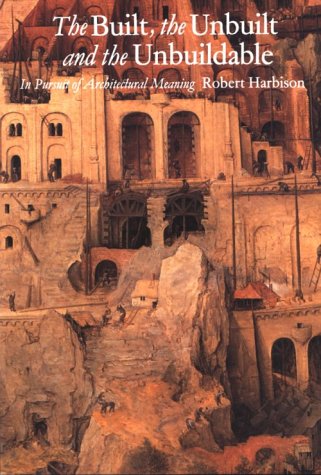The pristine, the ruined, the ephemeral, and even the notional are the subject of Robert Harbison's highly original and admittedly romantic contribution to the literature of architecture. His fresh perceptions open this practical art to new interpretations as he explores the means by which buildings, real or imagined, evade or surpass functional necessities while sometimes satisfying them.What fascinates Harbison in these discussions are the paradoxes and ironies of function that give rise to meaning, to a psychological impact that may or may not have been intended. He chooses examples from an architectural borderland - of gardens, monuments, ideal cities and fortification, ruins, paintings, and unbuildable buildings -where use and symbolism overlap; he examines the exceptions at the edges of a field that will illuminate its center.Harbison's pursuit of man's efforts to "fashion art from nonhuman life" begins with a consideration of gardens and the organic architecture of the English Arts and Crafts movement and of Gaudi, then turns to monuments (Claes Oldenburg, Christo, the Vietnam Memorial) that are "either the nearest or the furthest thing from gardens."
Harbison's discussion of fortification and urban planning leads to metaphorical themes (fort-features in churches or prisons or Fascist municipal buildings) and mocked-up worlds (Williamsburg, Disneyland), and to the subject of fictional space as expressed in ruins, in painting, in the unbuildable, and finally in the inconceivable as revealed in Kafka's sketches.Robert Harbison has lectured widely on architecture at the Museum of Modern Art in New York, the University of Toronto, Stanford University, Cornell University, and the Architectural Association, London. His previous books include Eccentric Spaces, Deliberate Regression, and Pharaoh's Dream.
- ISBN10 0262581221
- ISBN13 9780262581226
- Publish Date 4 May 1993 (first published 22 April 1991)
- Publish Status Out of Stock
- Out of Print 22 January 2021
- Publish Country US
- Publisher MIT Press Ltd
- Imprint MIT Press
- Format Paperback (US Trade)
- Pages 192
- Language English
